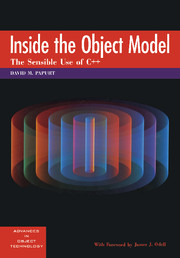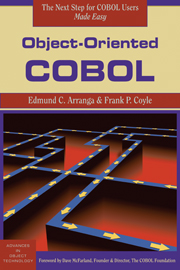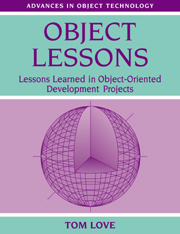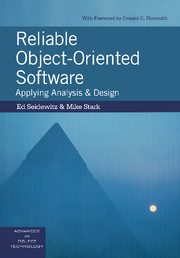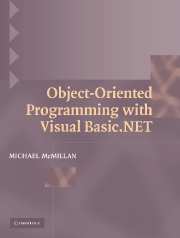Inside the Object Model
Inside the Object Model serves two key functions: it teaches object-oriented analysis and design from first principles and clearly explains C++ mechanisms that implement object-oriented concepts. Drawing on nearly ten years of programming and teaching experience, Papurt thoroughly describes the relationship between the basic principles and concerns of object modeling and the C++ programming language. Each chapter uses independent examples to illustrate key concepts described in the text and features helpful icons that clearly identify important ideas and dangerous pitfalls. With over 100 figures, hundreds of working code examples, and comparisons of coding techniques, this book rewards the reader with a complete understanding of both C++ and the object model. Professional software analysts, designers, programmers, and advanced computer science students will benefit from reading this book.
- Describes C++ language mechanisms that implement each object model concept
- Thoroughly describes pointer based association implementation techniques
- Explains sensible application of inheritance and virtual functions
Reviews & endorsements
"If you are learning C++ and can buy only two books to help you along, this should be one of them." PC Techniques
Product details
December 1997Paperback
9780132073660
546 pages
223 × 177 × 24 mm
0.84kg
Available
Table of Contents
- 1. Introduction
- 2. Program structure
- 3. The C language subset
- 4. Type, abstract data type, and class
- 5. Attributes, simple associations, and composition
- 6. Immutability and new built-in types
- 7. Object persistence and the object life cycle
- 8. Information access control
- 9. Expression evaluation and operator overloading
- 10. Type mismatch resolution
- 11. Representation invariant and copy semantics
- 12. Advanced associations and pointer-based implementation
- 13. Generalization and inheritance
- 14. Polymorphism and real-time binding
- 15. Metatype, parameterized type, and templates
- 16. Exception handling.

